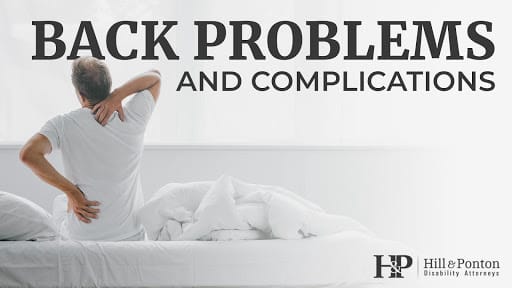Restless leg syndrome (RLS) is a serious neurological condition that affects movement, sleep, and daily life. For veterans, securing an accurate VA disability rating is crucial for receiving necessary medical treatment and financial support. RLS is prevalent among veterans and is often linked to military service through various secondary causes.
What Causes RLS and How Can I Service Connect It?
Restless leg syndrome is often inherited but can also arise from conditions like cerebral stroke, renal failure, lumbosacral radiculopathy, and peripheral neuropathy. A large study found that incident RLS in veterans is associated with higher risks of mortality, coronary heart disease, stroke, and chronic kidney disease.
Conditions Associated with Restless Legs
Several conditions predispose or worsen RLS:
- Parkinson’s Disease, Kidney Failure, and Diabetes: These conditions increase the risk of developing restless leg syndrome.
- Sleep Deprivation and Disorders: Sleep apnea and other sleep conditions can trigger or exacerbate RLS symptoms.
- Medications: Certain medications, such as antidepressants and antihistamines, may aggravate RLS symptoms.
- Nerve Damage: Both neurological disorders and trauma to the legs or spine can lead to restless leg syndrome.
Restless Leg Syndrome Secondary to Mental Health Conditions
Mental health conditions like depression and post-traumatic stress disorder are linked to RLS. Studies show a significant connection between PTSD and periodic leg movements. Additionally, symptoms often result in an inability to sleep, which exacerbates PTSD.
Restless Leg Syndrome Secondary to Sleep Disorders
Sleep apnea, insomnia and other medical conditions that disrupt sleep can also trigger or increase restless legs symptoms. This interplay between RLS and other disabilities will sometimes make it difficult to establish service connection. If your claim is denied, a VA lawyer may be able to help. Get a free case evaluation from Hill & Ponton.
What Is the VA Disability Rating for Restless Leg Syndrome?
The VA rates restless leg syndrome from 10 to 60% under diagnostic code 8620, neuritis of the sciatic nerve. Ratings start at 10% per leg and increase based on severity:
- Mild: 10% rating
- Moderate: 20% rating
- Moderately Severe: 40% rating
- Severe: 60% rating
How to Maximize VA Disability
Veterans with RLS may experience symptoms affecting their quality of life, potentially qualifying them for increased compensation:
- Mood Changes
- Exhaustion and Daytime Sleepiness
- Trouble Concentrating
- Memory Issues
- Decreased Productivity
- Depression and Anxiety
RLS can lead to chronic insomnia, sleep deprivation, and even cardiovascular diseases, all of which can be claimed as disabilities for higher combined ratings and disability benefits. Severe cases may render veterans unable to work (particularly a desk job), making them eligible for VA unemployability benefits.
TDIU and Restless Leg Syndrome
To qualify for Total Disability based on Individual Unemployability (TDIU), veterans must meet specific rating criteria:
- Schedular TDIU: One condition rated at least 60% or two conditions combined to reach 70%, with one condition rated at least 40%, OR
- Extraschedular TDIU: For veterans unable to meet schedular criteria but significantly hindered in employment due to their condition
How Can I Get a Restless Leg Syndrome VA Rating?
To claim disability for RLS you’ll require:
- A recent diagnosis: Obtain a diagnosis from a qualified medical professional
- Documentation of service-related events OR a service-connected disability tied to restless leg syndrome
- A medical nexus: Secure a written opinion linking RLS to service-related events or to a service-connected disability
First, file a VA disability benefits claim at your local VA Regional Office and wait to be scheduled for a C&P exam with a VA physician or a VA-contracted physician.
C&P Exam for Restless Leg Syndrome
There is no specific test for RLS, so the examiner will start by reviewing your medical records, including any previous diagnoses, treatment history, treatments, and evaluations related to RLS.
The physician will discuss the veteran’s military service history and ask questions about how restless legs affect critical aspects of life, such as sleep, work, family and social relationships. We recommend preparing a symptom diary documenting the frequency, duration and impact of the symptoms.
The examiner will complete a Disability Benefits Questionnaire (DBQ) for Peripheral Nerve Conditions, which helps assess the severity of the restless leg syndrome and the potential relation to other disabilities.
What If I’m Denied or Underrated?
Claims for restless leg syndrome can be difficult to win due to the nature of the condition. If denied, a VA lawyer can help navigate the appeals process and make sure you get the benefits you deserve. Hill & Ponton specializes in appeals and has supported veterans and their families for over 30 years. Call us today for a free evaluation.




